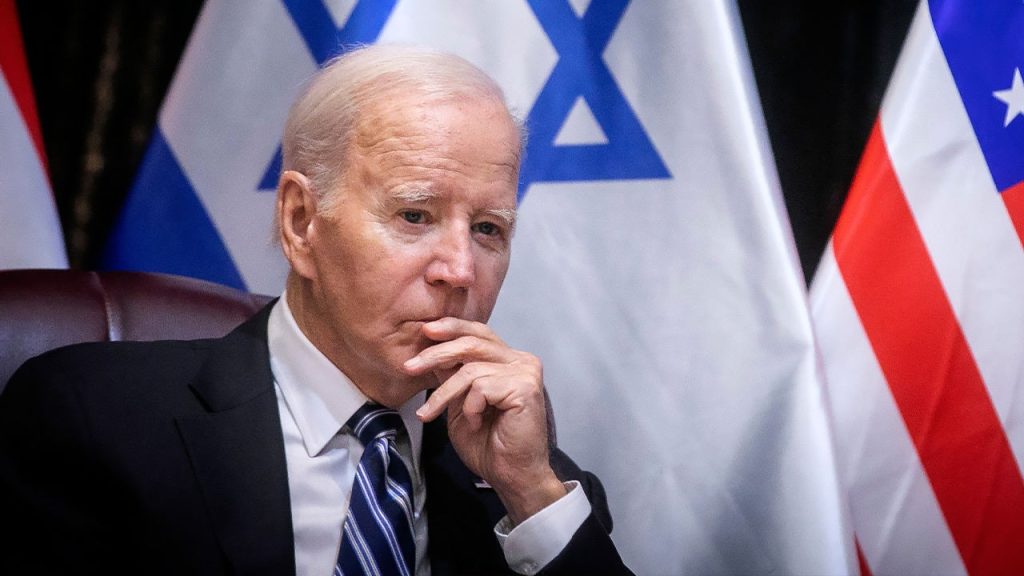The Biden administration has been facing criticism for conflicting messaging on the topic of Israel. White House press secretary Karine Jean-Pierre reiterated America’s commitment to Israeli security as “ironclad” despite criticism from lawmakers like Rep. Mike Rogers and Sen. Roger Wicker over the administration’s decision to pause arms sales. Former National Security Council official Victoria Coates criticized the administration for trying to please both sides and ending up angering everyone. GOP senators Ted Budd and Joni Ernst wrote a letter demanding issue-specific answers from Biden on arms sales and the situation in Rafah.
The Biden administration has faced backlash over reports of pausing a shipment of bombs to Israel, prompting concerns over the U.S. not providing necessary support to Israel in its conflict with Hamas. Former Reagan Justice Department chief of staff Mark Levin accused Biden of renewing “ancient blood libels against Jews” and House Foreign Affairs Committee Chair Michael McCaul called the threat of an arms embargo a “dangerous mistake.” Biden has condemned the surge of antisemitism in America but has been criticized for failing to take a tougher stance against anti-Israel agitators on college campuses or calls on law enforcement to step in.
In response to violent protests against Israel, Rep. Michael Lawler drafted the Antisemitism Awareness Act, which passed the House with bipartisan support but faced some opposition over concerns about potential violations of First Amendment rights. Meanwhile, 27 Republican senators called on the Department of Education and federal law enforcement to take action against anti-Semitic, pro-terrorist mobs on college campuses that have targeted Jewish students. The lawmakers demanded that action be taken to restore order, prosecute those who have perpetuated violence and threats, and hold school administrators accountable for failing to protect their students.
The administration’s attempts to navigate the complexities of the Israel-Palestine conflict have drawn criticism from various quarters, with some lawmakers accusing Biden of undermining allies, emboldening adversaries, and sending a message of unreliability. President Biden’s pledge to withhold weapons used historically in conflicts like the one in Rafah has further fueled concerns about the administration’s approach to supporting Israel. The conflicting messaging and decisions made by the administration have led to dissatisfaction and anger from both sides of the issue, highlighting the challenges of diplomacy in the Middle East.
Despite condemning antisemitism and expressing support for Israel’s security, the Biden administration has been faulted for its perceived lack of action in response to acts of violence and intimidation targeting Jewish Americans. Critics argue that the administration has failed to address the rise of anti-Israel sentiment on college campuses and the need for law enforcement intervention against those promoting terrorism. The administration’s response to the protests and demands for accountability from lawmakers reflect ongoing tensions and debates over the U.S.’s role in the Israel-Palestine conflict and efforts to combat antisemitism both at home and abroad.
Efforts to resolve the conflicting messaging and address concerns about the administration’s stance on Israel continue, with lawmakers pushing for answers on arms sales and calls for action against anti-Israel sentiments and violence. The administration’s responses to the criticisms and demands from lawmakers will likely shape future decisions and policies regarding U.S. support for Israel and efforts to combat antisemitism. As the debate over the administration’s approach to the Israel-Palestine conflict and the rise of antisemitism unfolds, the Biden administration faces challenges in balancing diplomacy, security interests, and domestic political considerations on these highly contentious and sensitive issues.


